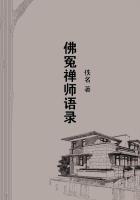On a hill in the midst of a great Austrian plain, around which high Alps wait watching through the ages stands a venerable fortress, almost more beautiful than anything one has ever seen.
Perhaps, if it were not for the great plain flowering broadly about it with its wide-spread beauties of meadow-land, and wood, and dim toned buildings gathered about farms, and its dream of a small ancient city at its feet, it might--though it is to be doubted--seem something less a marvel of medieval picturesqueness. But out of the plain rises the low hill, and surrounding it at a stately distance stands guard the giant majesty of Alps, with shoulders in the clouds and god-like heads above them, looking on--always looking on--sometimes themselves ethereal clouds of snow-whiteness, some times monster bare crags which pierce the blue, and whose unchanging silence seems to know the secret of the everlasting. And on the hill which this august circle holds in its embrace, as though it enclosed a treasure, stands the old, old, towered fortress built as a citadel for the Prince Archbishops, who were kings in their domain in the long past centuries when the splendor and power of ecclesiastical princes was among the greatest upon earth.
And as you approach the town--and as you leave it--and as you walk through its streets, the broad calm empty-looking ones, or the narrow thoroughfares whose houses seem so near to each other, whether you climb or descend--or cross bridges, or gaze at churches, or step out on your balcony at night to look at the mountains and the moon--always it seems that from some point you can see it gazing down at you--the citadel of Hohen-Salzburg.
It was to Salzburg they went next, because at Salzburg was to be found the man who looked like a hair-dresser and who worked in a barber's shop. Strange as it might seem, to him also must be carried the Sign.
“There may be people who come to him to be shaved--soldiers, or men who know things,'' The Rat worked it out, “and he can speak to them when he is standing close to them. It will be easy to get near him. You can go and have your hair cut.''
The journey from Munich was not a long one, and during the latter part of it they had the wooden-seated third-class carriage to themselves. Even the drowsy old peasant who nodded and slept in one corner got out with his bundles at last. To Marco the mountains were long-known wonders which could never grow old.
They had always and always been so old! Surely they had been the first of the world! Surely they had been standing there waiting when it was said “Let there be Light.'' The Light had known it would find them there. They were so silent, and yet it seemed as if they said some amazing thing--something which would take your breath from you if you could hear it. And they never changed.
The clouds changed, they wreathed them, and hid them, and trailed down them, and poured out storm torrents on them, and thundered against them, and darted forked lightnings round them. But the mountains stood there afterwards as if such things had not been and were not in the world. Winds roared and tore at them, centuries passed over them--centuries of millions of lives, of changing of kingdoms and empires, of battles and world-wide fame which grew and died and passed away; and temples crumbled, and kings' tombs were forgotten, and cities were buried and others built over them after hundreds of years--and perhaps a few stones fell from a mountain side, or a fissure was worn, which the people below could not even see. And that was all. There they stood, and perhaps their secret was that they had been there for ever and ever. That was what the mountains said to Marco, which was why he did not want to talk much, but sat and gazed out of the carriage window.
The Rat had been very silent all the morning. He had been silent when they got up, and he had scarcely spoken when they made their way to the station at Munich and sat waiting for their train. It seemed to Marco that he was thinking so hard that he was like a person who was far away from the place he stood in. His brows were drawn together and his eyes did not seem to see the people who passed by. Usually he saw everything and made shrewd remarks on almost all he saw. But to-day he was somehow otherwise absorbed. He sat in the train with his forehead against the window and stared out. He moved and gasped when he found himself staring at the Alps, but afterwards he was even strangely still.
It was not until after the sleepy old peasant had gathered his bundles and got out at a station that he spoke, and he did it without turning his head.
“You only told me one of the two laws,'' he said. “What was the other one?''
Marco brought himself back from his dream of reaching the highest mountain-top and seeing clouds float beneath his feet in the sun.
He had to come back a long way.
“Are you thinking of that? I wondered what you had been thinking of all the morning,'' he said.
“I couldn't stop thinking of it. What was the second one?'' said The Rat, but he did not turn his head.
“It was called the Law of Earthly Living. It was for every day,'' said Marco. “It was for the ordering of common things--the small things we think don't matter, as well as the big ones. I always remember that one without any trouble. This was it:
“ `Let pass through thy mind, my son, only the image thou wouldst desire to see become a truth. Meditate only upon the wish of thy heart--seeing first that it is such as can wrong no man and is not ignoble. Then will it take earthly form and draw near to thee.
“ `This is the Law of That which Creates.' ''
Then The Rat turned round. He had a shrewdly reasoning mind.
“That sounds as if you could get anything you wanted, if you think about it long enough and in the right way,'' he said.
“But perhaps it only means that, if you do it, you'll be happy after you're dead. My father used to shout with laughing when he was drunk and talked about things like that and looked at his rags.''















